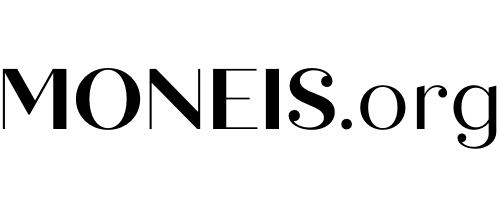Professional liability insurance is vital for safeguarding your career against unexpected claims. This article serves as a beginner's guide, simplifying the complex aspects of such insurance.
You'll learn how to choose the right policy and understand its coverage. It's essential for any professional looking to protect their livelihood.
Understanding Professional Liability Coverage
Professional liability insurance, often termed as 'errors and omissions' insurance, covers legal costs and damages. It's designed for professionals accused of negligence or failure to perform duties.
This insurance is crucial when standard business liability insurance doesn't cover such claims. It offers a safety net against financial loss due to legal actions.
Most policies cover legal fees, even if the lawsuit is groundless. This insurance is a critical component in a professional's risk management strategy.
Importance for Professionals
This insurance is vital for maintaining a stable, secure professional practice. It protects against claims of negligence or harm caused by professional advice or services.
This safeguard is crucial in today's litigious society. It helps maintain reputation and financial stability in the face of legal challenges.
For many professionals, it's a requirement for practice. Without it, a single lawsuit can significantly harm a professional's career.
Understanding Professional Liability Insurance
Professional liability insurance is more than a policy; it's a career safeguard. This section will clarify its definition and unique aspects.
Definition and Purpose
This insurance defends professionals against liability claims. It covers legal fees and damages awarded in lawsuits. This insurance is necessary due to the increasing legal risks in professional services.
It applies to mistakes, omissions, or negligence in service delivery. Unlike general liability insurance, it focuses on financial losses rather than physical damages. It's a tailored solution for professional risks.
Key Differences from Other Insurance Types
Understanding the distinctions between this and other insurances is crucial:
- General Liability Insurance: Covers physical injuries or property damage, not professional errors.
- Property Insurance: Protects physical assets, not liability from professional services.
- Workers' Compensation: Covers employee injuries, not professional negligence.
- Business Interruption Insurance: Focuses on income loss due to disasters, not legal liabilities.
Who Needs Professional Liability Insurance?
This section identifies those who benefit most from this insurance. It's not just for doctors and lawyers; various professionals need this coverage.
Professionals and Business Sectors That Require It
This insurance is critical for professionals in many fields. It's essential for lawyers, accountants, architects, and engineers. Healthcare providers also need this protection against malpractice claims.
Consultants, IT professionals, and financial advisors are increasingly requiring it. Any profession providing advice or services could face liability claims. This insurance is thus a fundamental aspect of risk management.
Examples of Risk Scenarios
Understanding potential risks helps in appreciating this insurance's value:
- A consultant's advice leads to a client's financial loss.
- An architect's design error causes structural issues.
- A therapist's guidance results in a patient's harm.
- An accountant's mistake leads to a tax audit.
- An IT professional's oversight results in data breaches.
- A lawyer's negligence causes a case loss.
Coverage Details
This section explains what's covered under these policies. Knowing what's included and excluded helps in making informed choices.
Types of Coverage Offered
Different policies offer varying levels of protection:
- Legal Defense Costs: Covers attorney fees, court costs, and settlements.
- Claims and Damages: Pays for damages awarded in lawsuits.
- Personal Injury Protection: Covers claims of libel, slander, defamation.
- Prior Acts Coverage: Protects against claims arising from past services.
What is Typically Included and Excluded?
Coverage typically includes defense costs, judgments, and settlements. It applies to claims of negligence, errors, or omissions. Exclusions often include intentional wrongdoing and criminal acts.
Claims of bodily injury and property damage are also usually excluded. Many policies exclude punitive damages. It's important to understand the specific terms and conditions of your policy.
Choosing the Right Policy
Selecting the right policy is crucial for adequate protection. This section guides you through the essential considerations.
Factors to Consider When Selecting a Policy
Consider the policy's coverage limits and deductibles. Evaluate the insurer's financial stability and claim response history.
Tailor the policy to your specific professional risks. Please review the policy regularly to ensure it meets evolving needs.
How to Compare Different Insurance Providers?
Research the insurer's reputation and experience in your industry. Compare the terms, coverage options, and prices of different policies.
Seek recommendations from industry peers or professional associations. Consult with an insurance broker for expert advice.
The Cost of Professional Liability Insurance
Understanding the cost is crucial in budgeting for this insurance. This section explores the factors affecting premiums and tips for managing them.
Factors influencing the cost:
- Profession Type: High-risk professions like medicine or law typically have higher premiums.
- Coverage Limits: Higher coverage limits result in higher premiums.
- Geographical Location: Costs vary based on the location of your practice.
- Claim History: A history of claims can increase premium costs.
- Policy Terms: Deductibles and policy exclusions also affect pricing.
- Experience Level: Less experienced professionals might pay more due to perceived higher risk.
Tips for managing premiums:
- Shop Around: Compare different insurers to find competitive rates.
- Risk Management: Implementing strong risk management practices can lower premiums.
- Deductibles: Opting for a higher deductible can reduce the premium cost.
- Tailor Your Coverage: Ensure the coverage matches your specific professional needs.
- Pay Annually: Sometimes, paying the premium annually rather than monthly can save money.
- Review Regularly: Review and adjust your policy as your professional needs change.
Making a Claim
Knowing how to file a claim and what to expect is essential for effective use of this insurance. This section outlines the steps for filing a claim and the claim process.
Steps to file a claim:
- Notice of Claim: Inform your insurer immediately after an incident.
- Documentation: Gather all relevant documentation related to the claim.
- Claim Form: Complete and submit the claim form provided by your insurer.
- Cooperation: Cooperate fully with your insurer during the claims process.
- Legal Representation: If necessary, arrange for legal representation, often offered by the insurer.
- Follow-up: Stay in regular communication with your insurer throughout the process.
What to Expect During the Claim Process?
The claim process involves several stages. Initially, your insurer will review your claim and determine if it falls under your policy's coverage. They will then investigate the claim, which may involve legal counsel.
Throughout this process, you must provide full cooperation and necessary documentation. Finally, if the claim is accepted, the insurer will pay defense costs and any settlements or judgment up to your policy's limits.
Wrapping Up: Key Takeaways in Professional Liability Insurance
Understanding professional liability insurance is vital for safeguarding your career. This guide has highlighted its importance, coverage specifics, and how to manage costs and claims.
With this knowledge, you can select the proper protection, ensuring long-term professional security. Remember, choosing the right policy is as crucial as your expertise in your field.




